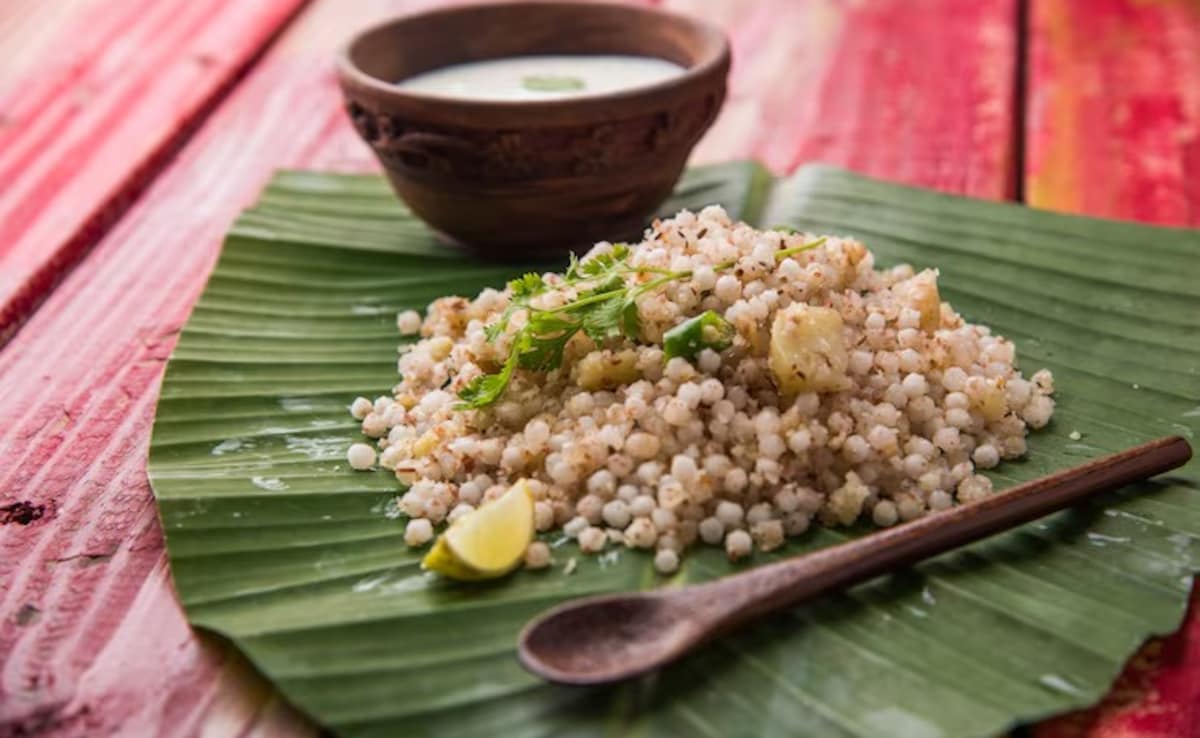
Navratri is one of India's most widely observed festivals, celebrated with devotion, music, dance, and of course, ritual fasting which is based on sattvic foods as prescribed in Ayurveda. Millions of people, particularly women, take part in fasting with dietary restrictions during the nine days, giving up grains, pulses, and sometimes even daily staples like onion and garlic. While fasting is rooted in spirituality and self-discipline, many devotees experience an unwelcome side effect: fatigue and low energy levels. If you've ever wondered why you feel more drained than uplifted during Navratri, you're not alone.
And if you're wondering why this happens, the reason is simple. The body goes through metabolic shifts during fasting. When not managed carefully, these changes can cause weakness, lethargy, mood swings, and even dizziness. This is especially true for women, who often juggle multiple responsibilities, like managing households, festive rituals, and work, while also coping with hormonal fluctuations that can worsen tiredness.
But fasting doesn't have to feel draining. With the right strategies, Navratri can become a period of rejuvenation for both body and mind. Here's a look at why fatigue happens during fasting and how you can fix it.
Why Fatigue Is Common During Navratri 2025 Fasting
If you are feeling more drained and tired during Navratri, any or all of the following reasons could be behind it.
Nutritional imbalance
During Navratri, the usual staples like wheat, rice, and legumes are often replaced with alternatives like singhara (water chestnut flour), kuttu (buckwheat flour), sabudana, and potatoes. While these are filling, they are high in carbohydrates and low in protein and fibre. The result: quick energy spikes followed by sharp crashes, leaving you drained.
Low protein intake
Protein is crucial for satiety, muscle maintenance, and steady energy. But since dals, beans, and many pulses are avoided, most fasting diets are carb-heavy and protein-poor. This imbalance contributes to sluggishness.
Iron and haemoglobin issues (especially in women)
Women are more prone to anaemia, and iron-rich foods like lentils, leafy greens (cooked with grains), and fortified cereals are often reduced during Navratri. Low iron levels mean less oxygen delivery to muscles and the brain, directly causing fatigue.
Dehydration
Many people forget to drink enough water while fasting. Dehydration is one of the quickest causes of headaches, dizziness, and exhaustion. Avoiding fluids during long ritual hours only worsens this.
Electrolyte imbalance
When you restrict salt or sweat heavily during garba and dandiya nights, the body loses sodium, potassium, and magnesium. These electrolytes are essential for energy, muscle function, and nerve signalling. Their depletion leads to muscle cramps, weakness, and fatigue.
Hormonal fluctuations in women
Women observing fasts during menstruation or pre-menstrual phases may feel extra fatigue due to hormonal shifts, blood loss, and reduced iron reserves. The combination of fasting and natural hormonal cycles makes tiredness more pronounced.
Sleep disruption
With late-night festivities, pujas, and early morning rituals and community gatherings, sleep quality often dips during Navratri. Inadequate rest compounds fatigue and reduces the body's resilience during fasting.

Photo Credit: Freepik
How To Fix Fatigue During Navratri 2025 Fasting
The good news is that fatigue isn't inevitable. Some simple yet effective tweaks that can help maintain energy throughout the nine days.
Smart Food Choices
- Balance carbs with protein: Pair carb-heavy foods like sabudana khichdi with peanuts or curd to add protein and healthy fats.
- Include vrat-friendly protein: Paneer, milk, curd, and nuts are allowed in most fasts and are excellent protein sources. Amaranth (rajgira) is also rich in protein and can be made into rotis or porridge.
- Load up on fibre: Sweet potatoes, pumpkin, cucumber, bottle gourd, and other vegetables are fasting-friendly and add fibre that helps stabilise energy levels.
- Don't skip fruits: Banana, papaya, apple, pomegranate, and citrus fruits are excellent natural energy boosters, offering vitamins, minerals, and quick glucose without heavy fatigue afterwards.
Prioritise Hydration
- Drink 8-10 glasses of water daily.
- Infuse with lemon, mint, or cucumber to make it refreshing.
- Coconut water is a natural electrolyte booster and keeps you energised.
- Herbal teas like tulsi or ginger tea can soothe digestion and improve alertness.
Manage Salt And Electrolytes
- Don't cut salt drastically unless required medically. Use sendha namak (rock salt) in moderation.
- Include potassium-rich foods like bananas and coconut water to maintain electrolyte balance.
- Roasted makhana with a pinch of rock salt is a great snack to prevent sodium dips.
Time Your Meals Wisely
Instead of two large meals, try smaller, frequent meals. For example:
- Morning: Fruits with curd or milk.
- Midday: Rajgira or kuttu roti with vegetables.
- Evening: Sabudana khichdi with peanuts.
- Night: A light paneer or pumpkin dish with buttermilk.
This prevents energy crashes and keeps blood sugar steady.
Don't Ignore Iron-Rich Foods
Women, especially those with borderline anaemia, should consciously include iron sources during fasting. Pomegranate, apple, and dates are good vrat-friendly options. Pair them with vitamin C-rich fruits like orange or amla to improve iron absorption.
Rest And Sleep
Adequate rest is crucial. Even if nights are festive, ensure at least seven hours of sleep. Short daytime naps can also restore energy.
Move Mindfully
While garba and dandiya are wonderful Navratri celebrations, overexertion without proper nutrition leads to burnout. Stretching, yoga, or light walking can help maintain circulation and energy without draining reserves. Even if you are not engaging in garba, make sure you stay active during the day.
Be Mindful Of Caffeine And Fried Foods
Tea and coffee can cause energy crashes later. Similarly, oily fasting foods like deep-fried kuttu pakoras or sabudana vadas may taste good but add to lethargy. Opt for roasted or steamed alternatives.
Fasting Without Fatigue Is Possible This Navratri
Navratri fasting is meant to cleanse the body and spirit, not leave you feeling depleted. Fatigue often creeps in because of simple nutritional imbalances, dehydration, or overexertion, especially in women juggling multiple responsibilities. With the right food combinations, adequate hydration, and mindful rest, fasting can actually energise you instead of draining you.
This festive season, listen to your body, nourish it with the right vrat-friendly foods, and let your energy match the vibrance of Navratri itself.
Disclaimer: This content including advice provides generic information only. It is in no way a substitute for a qualified medical opinion. Always consult a specialist or your own doctor for more information. NDTV does not claim responsibility for this information.
Track Latest News Live on NDTV.com and get news updates from India and around the world

